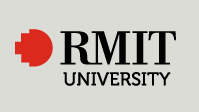-
UCL, DIVEST FROM FOSSIL FUELSClimate change has already caused millions to lose their lives and livelihoods after only one degree of global average warming [5]. ‘Business as usual’ scenarios see us facing up to six degrees of warming and hundreds of millions suffering. It’s time to take this problem on at its source: the fossil fuel companies. If it is wrong to wreck the climate, then it is wrong to profit from that wreckage. UCL cannot continue to use its funds from students, alumni, trusts and grant-making bodies to fund fossil fuel companies through its portfolio of investments. UCL's academics show a strong consensus on the effects of climate change, taking it into account in their research and making constructive proposals for how we can respond to and overcome it as a society. UCL is giving money to further this positive research yet chooses to invest in the fossil fuel industry, the root cause of climate change. This shows massive disrespect to their own staff, to the future of their students, and to all those around the world suffering the effects of climate change but also from the human right violations carried out by fossil fuel companies. With 1/4 of UK universities now having divested, 16 of which in the last year, UCL is losing its chance to lead the way towards a more sustainable world, proving that management prioritises profit over the protection of the environment, the future generations and the voice of thousands of students and academic staff who support divestment. In the ultimatum letter we sent to management in November 2016 we received more than 100 signatures from academic staff who support divestment [6]. How long will management keep disregarding the views of its student body and staff? One of the few counter-arguments management has presented is that they are scared divestment would negatively affect UCL's engineering department. However there is no evidence that by divesting UCL will risk its sponsorship from fossil fuel companies and jeopardise the ties the Engineering department have with them. All other universities who have divested still maintain links with the companies with no effect on their students future relations with these companies whatsoever. It is therefore high time we DEMOCRATISED our university and TAKE ACTION to prevent further planetary degradation. We as students, academics and above all citizens, have the power to change the world. References: [1] http://www.ucl.ac.uk/white-paper/mission [2] UCL Investment Portfolio, December 2012. [3] http://www.carbontracker.org/wp-content/uploads/downloads/2012/08/Unburnable-Carbon-Full1.pdf, p.13-14. [4] UCL Ethical Investment Policy, http://www.ucl.ac.uk/finance/finance_docs/investment_policy.htm [5] DARA, Climate Vulnerability Number 2010 http://daraint.org/climate-vulnerability-monitor/climate-vulnerability-monitor-2010/ [6] Open Letter to UCL Management http://fossilfreeucl.tumblr.com/openletter3,588 of 4,000 SignaturesCreated by Natasha Gorodnitski
-
Divest UH Manoa From Fossil FuelsUH should invest in the future by divesting in oil and gas. As Bill McKibben observes, “From a selfish point of view, it’s very good for colleges that they know something about the future that others don’t. Because investing is not about what’s happened in the past – all prices are really anticipations of what’s going to happen in the future." Redirecting investments away from oil and gas sends a message to future generations that UH is doing its part to build a more sustainable future. As the campus looks to increase alternative transportation options, it makes sense that it would also move away from investing in oil and gas. As carpooling and taking public transportation dramatically reduces congestion, energy usage, and is in general more environmentally-friendly, UH can send a message to the campus community that it is serious about reducing its carbon footprint by divesting. Given the global challenges that lie ahead, Hawai'i should be a world leader in sustainability, and UH ought to be at the forefront of education and action on sustainable issues. As only a handful of other major colleges and universities have already divested, UH has the chance to show its leadership in advocating sustainability. As Donna Vuchinich, President and CEO of UH Foundation, observes, UH Foundation’s new logo, “symbolizes our mission to uphold the University of Hawai‘i’s light of knowledge, and to unite donors with the University’s aspirations with integrity, accountability and trust.” We hope that UH Foundation will invest with integrity, accountability, and trust for both present and future generations. Students are driving the campaign for a Fossil Free UH, and representatives from the Sustainable UH, ASUH, GSO, Young Democrats, the Ecology Club, and Net Impact were integral in planning this campaign. Help us build a more sustainable future for the UH System and our 'aina.293 of 300 SignaturesCreated by Cali Reed
-
University of Birmingham Fossil Free"If it is wrong to wreck the climate, then it is wrong to profit from that wreckage." Too many UK universities, including the University of Birmingham, support the fossil fuel industry directly through their research, their endowments and investments and their partnerships with some of the biggest fossil fuel companies in the world, like BP, Shell and ExxonMobil. The fossil fuel industry has a concerning amount of influence over our education, with numerous members of the university’s advisory board working for fossil fuels companies. These include Tony Hayward, former chief executive of BP and current Glencore chairman, and Lord Browne former chief executive of BP and Cuadrilla company director. Additionally, companies affect educational programmes by funding research and professorships, such as the ExxonMobil Teaching Fellowship, formerly held by Chemical Engineering lecturers. We believe that our educational institutions should serve the public good and live up to their promises to tackle climate change. No UK university in their right mind would accept funding from, or invest their funds into tobacco companies these days- it’s inconsistent with their research on cancer. The same holds true for fossil fuel companies causing climate change, and yet the University of Birmingham still does not recognise this. That’s about to change. UK students have decided to take on the fossil fuel industry by getting our universities to go Fossil Free. People & Planet is joining forces with the 350.org campaign that has been sweeping across North American campuses. 200 publicly-traded companies hold the vast majority of the world’s proven coal, oil and gas reserves. Those are the companies we’ll be asking the University of Birmingham to break their links with. Together they hold five times more carbon in their fossil fuel reserves than we can safely afford to burn to stop runaway climate change. From Canada’s dirty tar sands to Arctic drilling and hydraulic fracturing (or fracking) for shale gas - the fossil fuel industry is scraping the bottom of the barrel and causing huge environmental and human devastation in the process. Withdrawing our institutions’ financial and moral backing for this climate-wrecking industry is crucial to tackling climate change. WHAT ARE THE ALTERNATIVE SOURCES OF FUNDING AND INVESTMENT FOR THE UNIVERSITY OF BIRMINGHAM? Renewables: most of the technology needed to make the transition from fossil fuels to renewable has already been developed and is completely viable. It is simply the cultural and social custom adopted by the energy industries that needs to change. A global power shift. http://globalpowershift.org/frequently-asked-questions-faqs/ see: • International Energy Agency (World Energy Outlook Special Report 2013: Redrawing The Energy Climate Map) • Centre for Alternative Technology (Zero Carbon Britain: Rethinking the Future) • David Mackay FRS (Sustainable Energy – without the hot air) WHAT IS 'THE CARBON BUBBLE'? Investing in fossil fuels is fast becoming a risky investment: London School of Economics has reported the market will collapse in the coming years. See http://www.lse.ac.uk/GranthamInstitute/publications/Policy/docs/PB-unburnable-carbon-2013-wasted-capital-stranded-assets.pdf524 of 600 SignaturesCreated by Rachel Kenyon
-
Fossil Free UWEUK students have decided to take on the fossil fuel industry by getting our universities to go Fossil Free. People & Planet is joining forces with the 350.org campaign that has been sweeping across North American campuses. We believe that our educational institutions should serve the public good and live up to their promises to tackle climate change. No UK university in their right mind would accept funding from or invest their funds in tobacco companies these days - it’s inconsistent with their research on cancer. The same holds true for fossil fuel companies causing climate change and yet most universities still do not recognise this. That’s about to change! From Canada’s dirty tar sands to Arctic drilling and hydraulic fracturing (or fracking) for shale gas - the fossil fuel industry is scraping the bottom of the barrel and causing huge environmental and human devastation in the process. Withdrawing our institutions’ financial and moral backing for this climate-wrecking industry is crucial to tackling climate change.46 of 100 SignaturesCreated by Louise Hazan

-
Lehigh University: Go Fossil Free!Climate change is accelerating. We are witnessing the increasing impacts of a warming planet more and more consistently; in this last year alone our country experienced record-breaking heat, droughts, and hurricanes, which impacted hundreds of thousands of people and cost our country hundreds of billions of dollars. Hurricane Sandy alone caused $50bn in damages. Experts agree that global warming caused by humans burning fossil fuels will continue to accelerate and intensify these tragic climate disasters. The scientific consensus is clear and overwhelming; we cannot safely burn even half of global fossil-fuel reserves without dangerously warming the planet for several thousand years. As public pressure to confront climate change builds, we call on Lehigh University to 1. immediately freeze any new investment in companies responsible for the extraction, refinement, and processing of fossil fuels, and any companies whose sole purpose is to support these aforementioned companies 2. completely divest within five years from direct ownership and from any commingled funds that include public equities and corporate bonds associated with the companies mentioned above 3. increase investments in renewable energy companies We believe such action on behalf of Lehigh University will not only be a sound decision for our institution’s financial portfolio, but also for the well-being of its current and future graduating classes, who deserve the opportunity to graduate with a future not defined by climate chaos. Additionally, the aforementioned actions are in alignment with the university’s commitment to service to others as discussed in the mission statement; just as graduates “are expected to live by a set of mature cultural and personal values, accept the virtue of work as a vehicle of service”, we expect these same ideals to be reflected by our administration.331 of 400 SignaturesCreated by Laura Dobroski
-
Fossil Free UELIf it is wrong to wreck the climate, then it is wrong to profit from that wreckage. No UK university in their right mind would accept funding from or invest their funds in tobacco companies these days - it’s inconsistent with their research on cancer. The same holds true for fossil fuel companies causing climate change and yet most universities still do not recognise this. UEL wishes to portray itself as a green university. It is time to match their words with actions.103 of 200 SignaturesCreated by Tara Clarke
-
Divest UWS from Fossil FuelsUWS cites a vision of "Sustainability as a CORE business", continued investment in fossil fuels is in opposition to this vision. As UWS continues to establish itself as a leader in campus sustainability, it must be ready to engage in sustainable practices at all levels-especially with regards to its investment activities. The effects of climate change are becoming increasingly clear. In this last year alone our country experienced record-breaking heat, droughts, and floods, which impacted thousands of people. Experts agree that global warming caused by humans burning fossil fuels will continue to accelerate and intensify these tragic climate disasters. The scientific consensus is clear and overwhelming; we cannot safely burn even half of global fossil-fuel reserves without dangerously warming the planet for several thousand years. The health impacts of climate change will be extensive, ranging from greater amounts of heat-related illness and vector-borne disease, loss of food sources, as well as the extensive mental health issues from the changing environment. As a university with a medical school and a multitude of allied health faculties it is a responsible move to take the preventative steps to avoiding these health issues. We believe such action will not only be a sound decision for our institution's financial portfolio, but also for the wellbeing of its current and future graduating classes, who deserve the opportunity to graduate with a future not defined by climate chaos.20 of 100 SignaturesCreated by Todd AG
-
Divest for a Fossil Free LMUClimate change is accelerating. We are witnessing the increasing impacts of a warming planet more and more consistently; in this last year alone our country experienced record-breaking heat, droughts, and hurricanes, which impacted hundreds of thousands of people and cost our country hundreds of billions of dollars. Hurricane Sandy alone caused $50 billion in damages. Experts agree that global warming caused by humans burning fossil fuels will continue to accelerate and intensify these tragic climate disasters. The scientific consensus is clear and overwhelming; we cannot safely burn even half of global fossil-fuel reserves without dangerously warming the planet for several thousand years.216 of 300 SignaturesCreated by Connor DeVane
-
Fossil Free Lund UniversityFossil Free är en global kampanj för att flytta våra gemensamma tillgångar (skattepengar och andra resurser) från investeringar i olja, kol och gas. Det är inte många institutioner idag som placerar sina tillgångar i vapenindustrin - det är helt enkelt betraktat som omoraliskt. Människor håller med varandra om att vapen inte är okej att stödja. Det vi nu insett är att även olja, kol och gas kan ses som vapen: Vapen riktade mot oss, klimatet och vår framtid. Är det då verkligen moraliskt att ha sina pengar placerade i en industri som utsätter oss alla för fara, en industri som bevisligen spenderar miljarder årligen på att genom lobbyism och klimatskeptiska tankesmedjor förhala all politisk handling riktad mot en förnybar omställning? "If it's wrong to wreck the climate, then it's wrong to profit from that wreckage!" Det finns även starka finansiella incitament för att divestera ur fossilindustrin. Vi har råd med absolut max en 2-gradig global medeltemperaturhöjning. För att hålla oss under 2 grader har vi råd att släppa ut max 565 gigaton koldioxid i atmosfären fram till 2050, detta enligt rapporten “Unburnable Carbon” från Carbon Tracker Initiative. Enligt samma rapport sitter dock fossilindustrin redan på gas-, kol- och oljekällor som vid utvinning och förbränning skulle orsaka utsläpp av 2 795 gigaton koldioxid. Utifrån detta kan vi räkna ut att 80% av befintliga fossila bränslen måste lämnas under jord, ifall vi vill bibehålla ett någorlunda stabilt klimat på jorden! Det innebär också att de pengar vi har placerade i dessa bränslen kommer att försvinna i tomma intet så snart alla inser att vi måste lämna 80% under jord - detta är en finansiell bubbla som förmodligen kommer att spricka inom en snar framtid. Inte vill väl vi förlora 80% av värdet på stora delar av våra tillgångar? Se gärna "Do the Math", en film som beskriver problematiken med att fossilindustrin ges fria tyglar (med stöd av våra pengar): http://vimeo.com/66066932 ENGLISH Fossil Free is an international campaign to move our common assets (tax money and other resources) from investments in oil, coal and gas. There are not many institutions today that invest in the weapon industry - it is simply regarded as immoral. People agree with each other about weapons is not okay to support. What we have realized, is that oil, coal and gas can be seen as weapons as well, weapons directed against us, the climate and our future. Is it then really moral to have ones money invested in an industry that puts us all at risk, an industry that evidently spends billions annually to procrastinate any political act directed against a renewable conversion, through lobbying and climate skeptic think tanks? "If it 's wrong to wreck the climate , then it's wrong to profit from that wreckage ! " There are also strong financial incentives to divest from the fossil industry. A 2 degree global temperature rise is the absolute maximum we can afford. To stay below 2 degrees , we can afford to emit maximum 565 gigatons of carbon dioxide in the atmosphere by 2050 , according to the report "Unburnable Carbon" from Carbon Tracker Initiative. According to the same report , the fossil industry already holds gas, coal and oil sources that would cause the release of 2,795 gigatons of carbon dioxide when extracted and incinerated. From this we can understand that 80% of existing fossil fuels must be left in the ground, if we want to maintain a reasonably stable climate on earth! It also means that the money we have invested in these fuels will disappear into nothing as soon as everyone realizes that we have to leave 80% in the ground - this is a financial bubble that will probably crack in the near future. We surely don't want to lose 80% of the value of much of our assets? The film "Do the Math" above is a movie that describes the problems associated with our financial support to the fossil fuel industry.2,163 of 3,000 SignaturesCreated by Lisa Brand
-
Divest Ball State University from Fossil FuelsIn recent years, Ball State has developed a reputation as an institution at the forefront of social and environmental responsibility. Despite significant progress at the university, the foundation’s endowment investments remain closed to the public. In 1999, as we entered the 21st century, Ball State made a commitment to sustainability; students, shareholders, and alumni deserve to know that the university and its affiliates are living up to that promise. If the current financial opacity continues, confidence in the administration’s commitments will continue to erode. Only when the investment policies are public knowledge can we work together to uphold the principles that this institution has adopted, while ensuring the university’s financial health and success. Ball State is seen as one of the most sustainable schools in the nation and has taken many steps to achieve this creditability. Some examples of what Ball State has done is having the largest geothermal in the country, all of our buildings meet LEED silver certification, and Ball State has received several awards for being environmentally conscious. However, if Ball State University is investing fossil fuel companies, Ball State is being hypocritical in their actions. For Ball State to be a truly sustainable campus, transparency of funds and not investing in fossil fuel corporations are essential next steps. Not to mention, climate change is accelerating. We are witnessing the increasing impacts of a warming planet more and more consistently; in this last year alone our country experienced record-breaking heat, droughts, and hurricanes, which impacted hundreds of thousands of people and cost our country hundreds of billions of dollars. Hurricane Sandy alone caused $50bn in damages. Experts agree that global warming caused by humans burning fossil fuels will continue to accelerate and intensify these tragic climate disasters. The scientific consensus is clear and overwhelming; we cannot safely burn even half of global fossil-fuel reserves without dangerously warming the planet for several thousand years. As public pressure to confront climate change builds, we call on Ball State University to immediately freeze any new investment in fossil-fuel companies, and to divest within five years from direct ownership and from any commingled funds that include fossil-fuel public equities and corporate bonds. We believe such action on behalf of Ball State University will not only be a sound decision for our institution’s financial portfolio, but also for the wellbeing of its current and future graduating classes, who deserve the opportunity to graduate with a future not defined by climate chaos.1,080 of 2,000 SignaturesCreated by Kourtney Dillavou
-
Fossil Free UQWe, the undersigned, acknowledge and applaud the important commitment that UQ is making to embedding sustainability across all aspects of learning, discovery, engagement and operations. One important aspect of UQ’s ecological footprint that we would like to bring the University’s attention to is responsible financial investment. UQ’s 2012 financial statements list $105 million of UQ’s assets invested either in a managed portfolio or directly in listed and unlisted shares. It is reasonable to expect that a significant fraction of this is currently invested in companies that produce fossil fuels. It is now widely understood that we cannot safely burn even one-third of global fossil-fuel reserves without dangerously warming the planet for several thousand years. We are already witnessing the increasing impacts of a warming planet more and more consistently; in the last year alone our country experienced record-breaking heat, droughts, and extreme rainfall. These events had a grave impact on hundreds of thousands of people and cost our country billions of dollars. Experts agree that global warming caused by humans burning fossil fuels will continue to accelerate and intensify these tragic climate disasters. Adopting the Brundtland definition of sustainability, continued fossil fuel extraction and consumption is inconsistent with the rights of future generations to a safe and habitable world and is therefore unsustainable. Through its current investment portfolio, UQ is facilitating and profiting from the continued and expanding extraction and burning of fossil fuels, despite the harm that these practices are known to be causing to many millions of people worldwide. Over past decades, universities have shown vision and leadership through divesting from the South African Apartheid regime, cluster munitions, and tobacco, and increasingly now from fossil fuels. We believe such action on behalf of UQ will contribute to the wellbeing of current and future students who deserve the opportunity to graduate with a future not defined by climate chaos. We also believe such action would be a sound decision for our institution’s financial portfolio, given falling coal and gas prices, rising costs and a high exchange rate all associated with fossil fuel projects, current and prospective. Furthermore, policies which effectively mitigate climate change pose a risk to the value of fossil fuel companies' assets. To preserve the quality of life for this and future generations worldwide, we call upon you to join a growing movement of universities and institutions around the world that have committed to preventing a more extreme climate by moving UQ’s investment portfolio beyond fossil fuels.1,159 of 2,000 SignaturesCreated by Ruby Ludski
-
Divest RMIT From Fossil FuelsRMIT is one the leading universities in Australia. It holds over $280 million in financial assets and it is not yet known to what extent these assets are exposed to the volatile, high-risk and environmentally destructive fossil fuel industry, which is driving and accelerating global greenhouse gas emissions and obstructing meaningful action to curb anthropogenic climate change. Fossil Free RMIT wants to see the university commit to it's own guidelines and standards, put it's money where it's PR is and move towards cleaner, more ethical and socially just investment solutions. Atmospheric CO2 concentration levels crossed the 400 ppm threshold for the first time in human history (and in millions of years) and the world is already starting to feel the impacts of increasing extreme weather events, it is apparent that politicians, the state and corporations are unable and/or unwilling to take meaningful steps to curb climate change, even using solutions that in many cases are already available. Instead, the problem is being deferred to future generations. RMIT has the opportunity to actively address this crisis we face by divesting from fossil fuels. Many colleges and universities across the world are divesting from fossil fuels as we speak and as we act together we realise our power to make meaningful change. Let's strengthen RMIT's already strong commitment to sustainability by going fossil-free!218 of 300 SignaturesCreated by Mitch Connolly

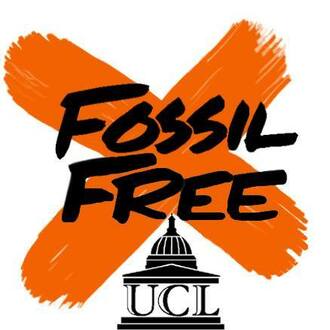

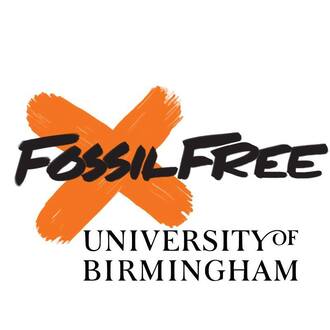
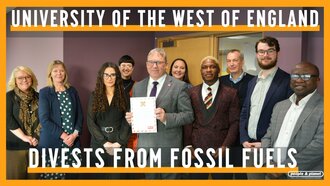
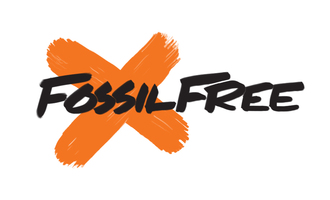

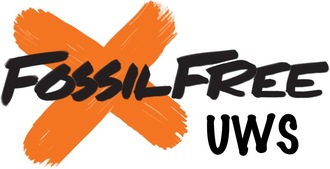

.jpg)


